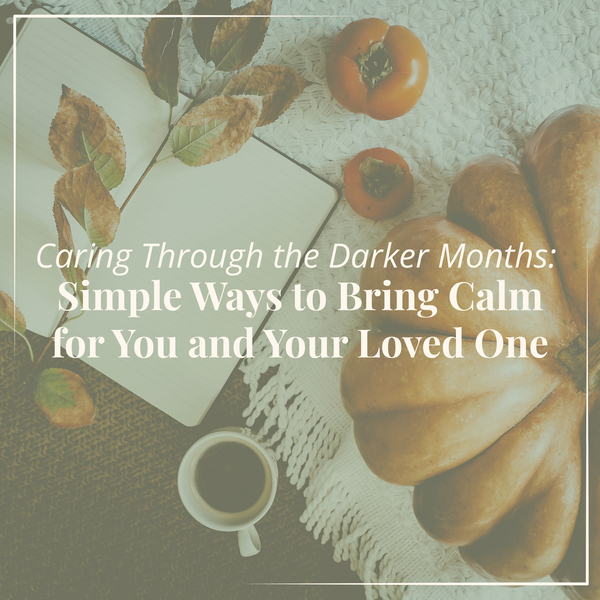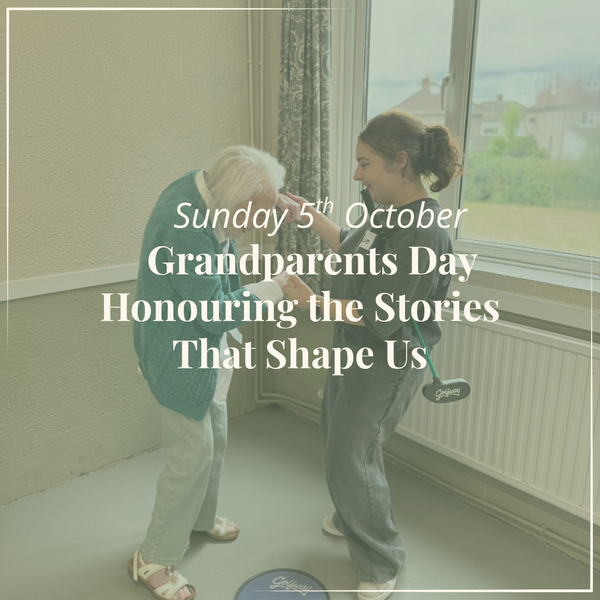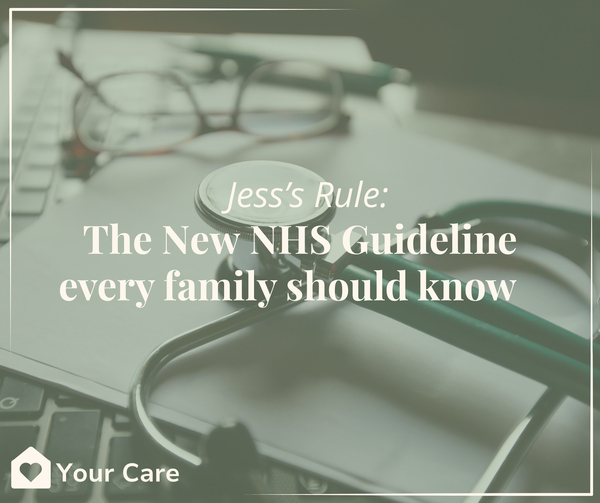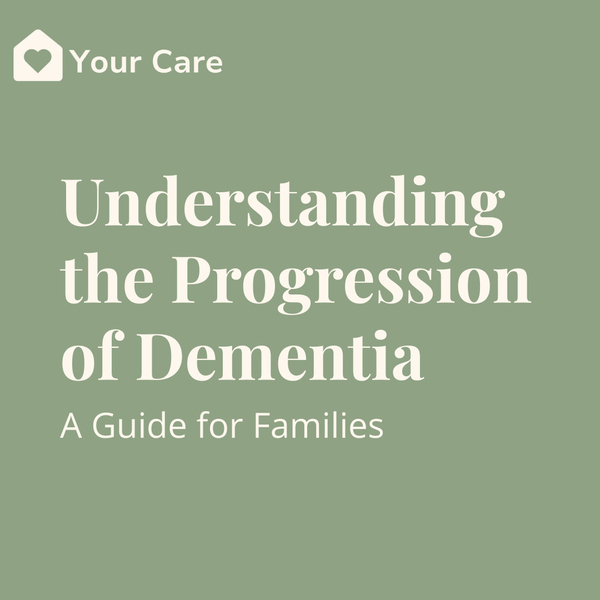Blog
Caring Through the Darker Months - Simple Ways to Bring Calm for You and Your Loved One
Friday 10th October 2025
Your Care
It's 4:30pm and already getting dark outside. You glance over at your mum, and you can see it starting - that restlessness, that confusion, that agitation that wasn't there an hour ago. She's pacing. She's asking the same questions repeatedly. She's insisting she needs to "go home" even though she is home. And you feel that familiar knot in your stomach because you know the next few hours are going to be difficult. If this sounds familiar, you're not alone. As the clocks go back and the evenings draw in, many families notice their loved one with dementia becomes more unsettled. The confusion increases. The anxiety rises. And caring feels that bit harder. At Your Care, we hear this from families every autumn:…
Celebrating UK Grandparents Day: Honouring the Stories That Shape Us
Friday 3rd October 2025
Your Care
Today is UK Grandparents Day - a special moment to celebrate the grandparents who have shaped our families, our communities, and our lives. At Your Care, we have the privilege of supporting grandparents across Bristol and South Gloucestershire every single day. And we know that behind every person we care for is a lifetime of stories, wisdom, and love. The Grandparents Who Shape Us Grandparents hold a unique place in our hearts. They're the storytellers who connect us to our family history. The patient teachers who showed us how to bake, garden, or fix things. The safe harbour during childhood storms. The keepers of traditions and the passers-on of wisdom. For many of us, our grandparents taught us what really matters in life…
Jess’s Rule: The New NHS Guideline Every Family Should Know
Wednesday 24th September 2025
When something does not feel right with your health, being heard can make all the difference. A new NHS guideline, known as Jess’s Rule, has been created to help stop symptoms being overlooked and it could save lives. Jessica’s Story Jess Brady was just 27 when she died from advanced cancer in December 2020. A talented young engineer, she was fit and healthy before the pandemic. But over five months, her health changed dramatically: -Unexplained weight loss -Night sweats -Constant fatigue -Persistent cough -Swollen lymph nodes Jess went to her GP more than 20 times. She saw six different doctors and even had face-to-face appointments. Each time, her symptoms were put down to long Covid. She was told she was “too young for cancer.” By the time her family…
3 gentle ways to respond when your loved one says, “I want to go home”
Thursday 18th September 2025
If you care for someone living with dementia, you may have heard them say, “I want to go home” – sometimes even when they’re already there. It can be difficult to hear and upsetting to know how best to respond. Trying to explain that they are home rarely helps. In fact, it can often cause more distress. Why does this happen? When someone with dementia says “I want to go home,” it’s rarely about the house itself. Dementia changes the brain in ways that affect memory, orientation and how surroundings are understood. The hippocampus – the part of the brain that helps us form new memories and make sense of where we are – is often affected early on in Alzheimer’s. This means…
Understanding the Progression of Dementia: A Guide for Families
Wednesday 27th August 2025
Dementia is a journey that no family ever wants to take, but understanding what to expect can make the path less daunting. This guide will walk you through the typical stages of dementia, the symptoms to look out for, and how you can prepare for the changes ahead. The Stages of Dementia and Key Symptoms Dementia is typically divided into three main stages: early, middle, and late. Each stage comes with its own set of challenges and changes. 1. Early Stage (Mild Dementia) • Symptoms: Forgetfulness, losing track of time, misplacing items, difficulties finding the right words, and slight confusion. • What to Expect: The person may still live independently but might struggle with tasks that require planning or organisation. Social interactions may become harder, and mood…
Keeping Cool During Heatwaves: Tips for Elderly and Dementia Care in Bristol
Friday 27th June 2025
With temperatures soaring across the UK, heat health warnings have been issued to protect vulnerable individuals, particularly the elderly and those living with dementia. In this blog, we provide essential tips on how to keep cool, hydrated, and safe during a heatwave, specifically for dementia patients in Bristol. From hydration advice to cooling techniques, make sure your loved ones remain comfortable throughout this challenging weather. As the UK faces a significant rise in temperatures, the UK Health Security Agency (UKHSA) has issued amber heat health alerts for Southern parts of England. From Friday at 12:00 BST to Tuesday at 18:00 BST, temperatures are expected to soar above 30°C, with the peak of the heat likely to reach 34°C or 35°C in…
Gentle Steps, Big Benefits: The Joy of Walking with Support
Sunday 25th May 2025
At Your Care, we know that even a gentle stroll can work wonders. This May, we’ve been celebrating National Walking Month - a chance to celebrate the simple joy of moving more, especially for the older adults and people we proudly support every day. Whether it’s walking to the garden gate, taking a few laps inside the house or enjoying a scenic route with a carer, walking is a brilliant way to boost both body and mind and it's never too late to start. Why Walking Matters for Everyone - Especially Our Clients For those living with dementia, walking can provide calming sensory input and reduce feelings of restlessness or agitation. A familiar route or a favourite view can bring a sense of…
Side by Side: Supporting Dementia with Heart
Monday 12th May 2025
Dementia Action Week | 12 to 18 May 2025 At Your Care, we know that living with dementia isn’t always easy, but no one should face it alone. This Dementia Action Week, we’re shining a light on the incredible carers who support individuals and families with such love, patience, and dignity every single day. We’re also here to remind you that a diagnosis doesn’t take away a person’s spirit, their worth, or the beautiful moments they still have to share. Dementia Can Change Things, But It Doesn’t Change Everything Everyone experiences dementia differently. It might affect memory, conversation, or how someone sees the world around them. But what stays the same is who they are at their core - their humour, their stories, their…
Nutrition & Wellness Guide for the Elderly - Part One
Tuesday 22nd April 2025
As we age, maintaining a healthy lifestyle becomes increasingly important. Proper nutrition and wellness practices can help the elderly to stay active, prevent disease, and enhance their quality of life. However, many common dietary misconceptions can lead to nutrient deficiencies, muscle loss, and increased health risks. This guide provides essential, yet often overlooked, dietary and wellness strategies tailored for the elderly, to support their overall well-being. Please note: Before making any significant dietary changes, including electrolyte intake, supplement use, or changes in fluid consumption, consult a doctor or pharmacist—especially if taking medications or managing chronic health conditions. PART ONE Advanced Nutritional Strategies for Elderly 1. Prioritising Calories and Protein for Muscle Retention o Many elderly people experience a natural decline in appetite, which can lead to unintended…
The Harsh Reality of One-Hour Care Visits: Why They Fail Our Most Vulnerable
Tuesday 18th March 2025
At Your Care, we stand firmly against the one-hour care visit model, a standard practice for many traditional care agencies. Our commitment to providing two-hour visits stems from real-world experience and an understanding of what quality care truly means. To illustrate the limitations and poor outcomes of one-hour visits, let’s walk through a typical scenario, drawn from actual frontline caregiving experiences. A Snapshot of One-Hour Care Visits: Elsie’s Story Elsie, 96, lives alone and has dementia. At 8:00 AM, a carer arrives to assist Elsie with her morning routine. Elsie is sound asleep and waking her proves difficult. She is disoriented, agitated, and unwilling to get out of bed, repeatedly telling the carer to leave her alone. With only an hour to complete…










